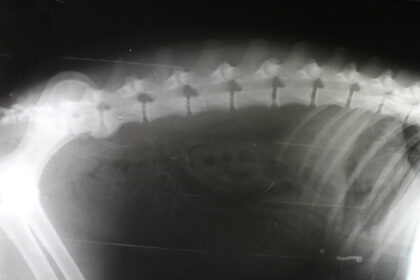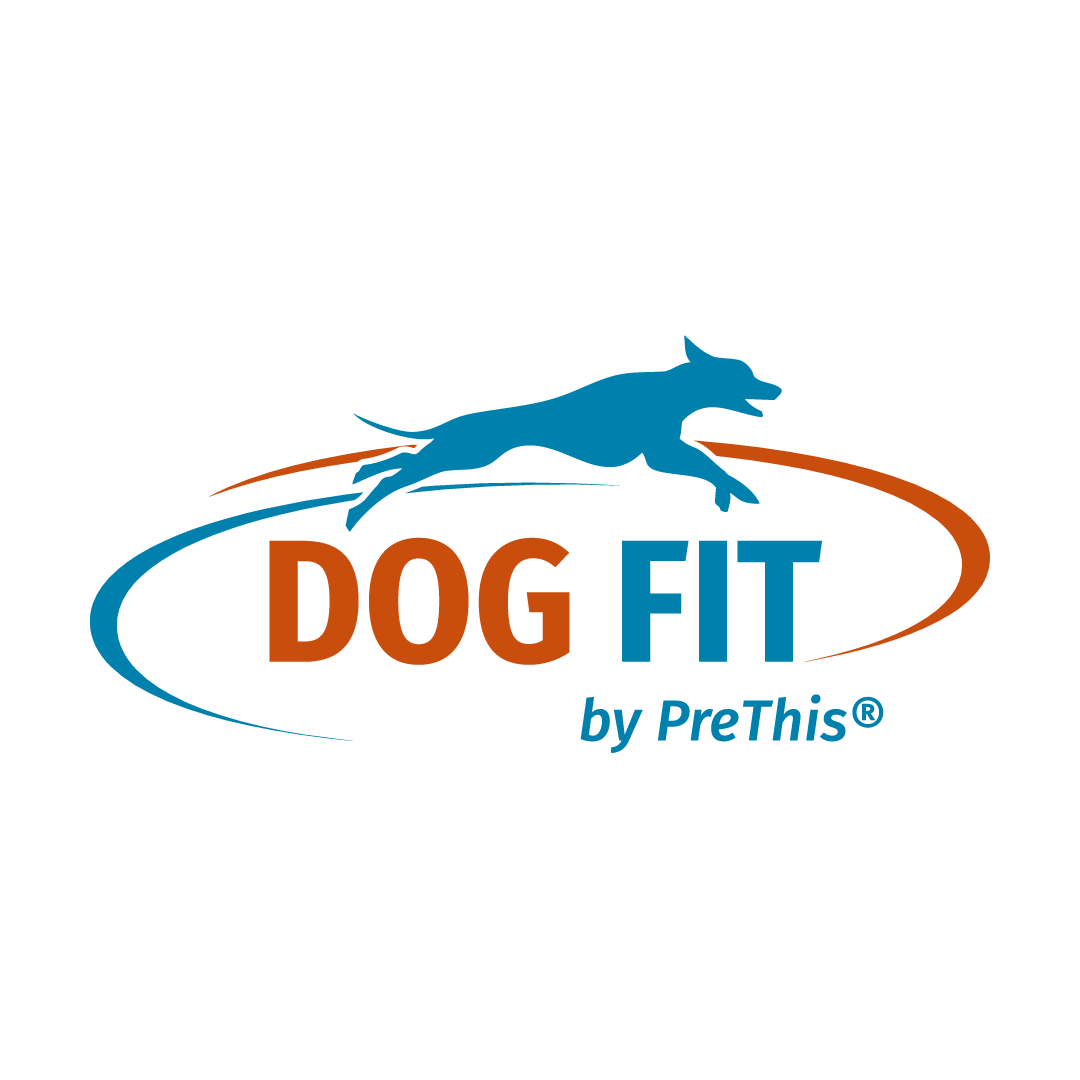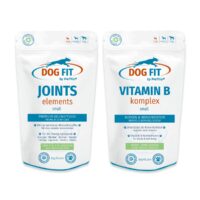
Wedge vertebrae in dogs are a serious orthopedic problem that presents many affected animals and their owners with major challenges. In this article, we explain what wedge vertebrae actually are, how they develop, which breeds are particularly at risk, the consequences of spinal cord compression, and when surgery is necessary. We also show how to best support affected dogs in everyday life.
What are wedge vertebrae?
Wedge vertebrae, sometimes also referred to as wedge vertebrae or ham vertebrae, are congenital malformations of individual vertebral bodies in the dog’s spine. Affected vertebrae have a wedge-shaped structure instead of a normal rectangular one. This deformation can lead to a curvature or deformation of the spine and, in the worst case, constrict the spinal cord. Depending on how severely the vertebrae are affected and where they are located, the effects on the dog’s musculoskeletal system and well-being vary considerably.
What causes wedge vertebrae?
Wedge vertebrae are usually caused by genetic factors passed down through several generations. This malformation is particularly common in certain dog breeds with a breeding-related predisposition to spinal anomalies. However, spontaneous mutations or errors during development in the womb can also play a role. The crucial point is that wedge vertebrae are usually congenital and not the result of improper housing or feeding.
Which dog breeds are particularly affected?
Breeds in which wedge vertebrae are more common include Dachshunds, Welsh Corgis, Shih Tzus, French Bulldogs, German Shepherds, and German Shorthaired Pointers. There is a particularly increased risk in overbred breeds or those with severely shortened backs or “screwed” spines, such as those found in French Bulldogs. The genetic component is crucial – therefore, choosing a responsible breeder is important.
Consequences of Spinal Cord Compression
If wedge vertebrae compress the spinal cord, this can cause a variety of health problems. Symptoms range from back pain, restricted movement, and lameness to muscle weakness and incontinence and even paralysis. Some dogs also exhibit noticeable tremors or shaking. It becomes particularly critical when the nerve supply to the hind legs is affected, as this can lead to serious limitations in everyday life. In rare cases, however, a wedge vertebra is asymptomatic and is only discovered incidentally.
When is vertebral surgery necessary?
Whether surgery is necessary depends largely on the severity of the symptoms and the degree of compression. If severe pain, paralysis, or a significant deterioration in quality of life is present, surgical decompression of the spinal cord may be the best option. A comprehensive diagnosis using X-rays or MRI is essential before making a decision. The treating veterinarian or a specialized veterinary clinic can then provide an individualized treatment recommendation. The goal is to prevent the progression of the disease and restore quality of life.
Nutrition and the Role of Micronutrients
A balanced diet with high-quality nutrients supports general well-being and can help support the natural functions of the nerves and musculoskeletal system. B vitamins, in particular, play a key role in nerve function, as they are involved in impulse conduction and cellular metabolism. Specific micronutrients for joints, intervertebral discs, and cartilage can also help promote the resilience of the back and counteract degenerative processes.
Support Options and Physiotherapy
For affected dogs, the combination of a needs-based nutritional supply and physiotherapy measures can be crucial. Special supplements – e.g., with B vitamins, collagen, or other joint building blocks – can be fed alongside the diet. Physiotherapy helps strengthen muscles, avoid protective postures, and maintain mobility. An experienced canine physiotherapist can address your dog’s individual needs and recommend targeted exercises that can be continued at home.
Everyday Tips for Dogs with Wedge Vertebrae
A dog with wedge vertebrae needs special attention in everyday life. Avoid sudden movements, wild jumping, and climbing stairs to relieve strain on the back. Lift your dog when getting in and out of bed.Always get out of the car with support, use non-slip surfaces and safe resting places. Gentle walks and light exercise stimulate the muscles and help prevent stiffness. Regular visits to the veterinarian or animal physiotherapist help monitor the progression early and provide targeted support.
Every dog is unique – including when dealing with wedge vertebrae. With attention, expert care, and the right support, the lives of many affected dogs can be made significantly easier. It’s worth exploring new ways to improve mobility and well-being together.
Product information: DOG FIT by PreThis® JOINTS elements + VITAMIN B 🛒 – Valuable supplementary food for dogs in an affordable combination set with carefully selected micronutrients. Free from genetic engineering and artificial additives. You can find more information here:

The content of the articles is for general information purposes only and does not replace diagnosis or treatment by a veterinarian. Reviews or testimonials are individual reports from verified customers. This information does not constitute medical advice and should not be understood as such.
Our daily inspiration comes from the special moments with our dogs. Here we share this enthusiasm and invite you to become part of the DOG FIT community on our social media channels.



Leave a Reply